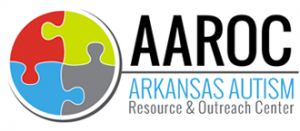
Autism is a genetically linked, neurodevelopmental disorder diagnosed in early childhood. It is characterized by impairments in social interaction, deficits in verbal and non-verbal communication, and repetitive, stereotyped patterns of behavior.
The most recent prevalence study by the Centers for Disease Control (CDC) estimates that 1 in 44 children are diagnosed with and ASD, up from 1 in 145 only a few years ago.
Early Signs
The characteristic behaviors of autism spectrum disorders may or may not be apparent in infancy (18 to 24 months), but usually become obvious during early childhood (24 months to 6 years). As part of a well-baby/well-child visit, your child’s doctor should do a “developmental screening,” asking specific questions about your baby’s progress. The National Institute of Child Health and Human Development (NICHD) lists five behaviors that signal further evaluation is warranted:
- Does not babble or coo by 12 months
- Does not gesture (point, wave, grasp) by 12 months
- Does not say single words by 16 months
- Does not say two-word phrases on his or her own by 24 months
- Has any loss of any language or social skill at any age
Having any of these five “red flags” does not mean your child has autism. But because the characteristics of the disorder vary so much, a child showing these behaviors should have further evaluations by a multidisciplinary team. This team may include a neurologist, psychologist, developmental pediatrician, speech/language therapist, learning consultant, or other professionals knowledgeable about autism. In Arkansas an autism diagnosis must be made by a physician, a psychologist, and a speech language pathologist.
For more information about autism, visit the Centers for Disease Control autism website at https://www.cdc.gov/ncbddd/autism/index.html

